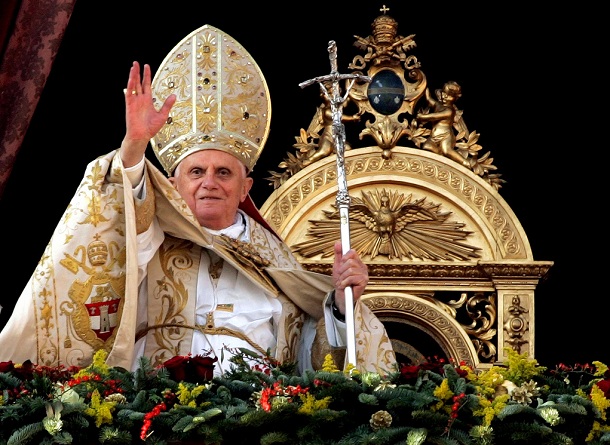First, Ratzinger almost invariably takes the minority opinion
concerning contentious historical questions. He – very problematically
in my opinion – glosses historical problems such as the dating of the
census and the disagreement between Matthew and Luke about where Joseph
and Mary are originally from. After quickly glossing the issue, he
concludes: “The two different strands of tradition agree on the fact
that Bethlehem was Jesus’ birthplace. If we abide by the sources, it
is clear that Jesus was born in Bethlehem and grew up in Nazareth.”
Yet it is not so simple. If the census that purportedly took place ca. 6
BC did not actually take place, then there was no reason for Joseph to
go to Bethlehem.
And the scholarship of Alois Stoger that Ratzinger cites to support the idea that Quirinius may have briefly been in Syria in 6-7 BC, and that the census may have been initiated at that time only to be completed twelve years later, is far from convincing and quite a stretch of the historical record.Matthew is also clearly wrong in thinking that Jesus and Mary were from Bethlehem. The other gospels are clear in their claim that Joseph and Mary were from Nazareth. And so, if Matthew is wrong about his Bethlehem claim, and Luke is in position of faulty historical data, then can it be so easily claimed, “it is clear that Jesus was born in Bethlehem”? Would it not be easier for Ratzinger to treat the faulty historical records that Matthew and Luke utilize in their infancy narratives in the same way he treats their appropriation of two different genealogies, viz., by claiming that the authors have “based themselves on traditions whose sources we cannot reconstruct. It seems to me utterly futile to formulate hypotheses on this matter. Neither evangelist is concerned so much with the individual names as with the symbolic structure within which Jesus’ place in history is set before us”? Could not the sources that the evangelists were working with also have been flawed and beyond our reconstruction? May they not too have been more interested in the “symbolic structure” of these sources than with the historicity of every detail?
This brings us to my second concern. Ratzinger’s offhand rejection of anything but “history” (and a rather Modern view of it, it seems to me) creates problems for his literary analysis.For example, he cites with approval Rene Laurentin’s observation that Luke structures his infancy narrative using the 490 days announced by Gabriel in the book of Daniel. John the Baptist’s 6 months in the womb prior to Jesus, added to Jesus’ 9 months, combined with the 40 days until the Presentation in the Temple, total 490 days. Very neat.
But how might such a literary technique square with history? Are we to believe that John the Baptist was actually historically 6 months older than Jesus and that this fact also just happens to fit neatly into the schema of 490 days?Scholars such as Luke Timothy Johnson and Raymond E. Brown also reject the infancy narratives as midrash, yet they are far more conscious than Ratzinger of the constructions at work in the narratives and the issues that these constructions raise for their historicity.
Link (here) to the full opinion piece by Jesuit Scholastic Nathan O'Holloran at Whomsoever Desires











No comments:
Post a Comment